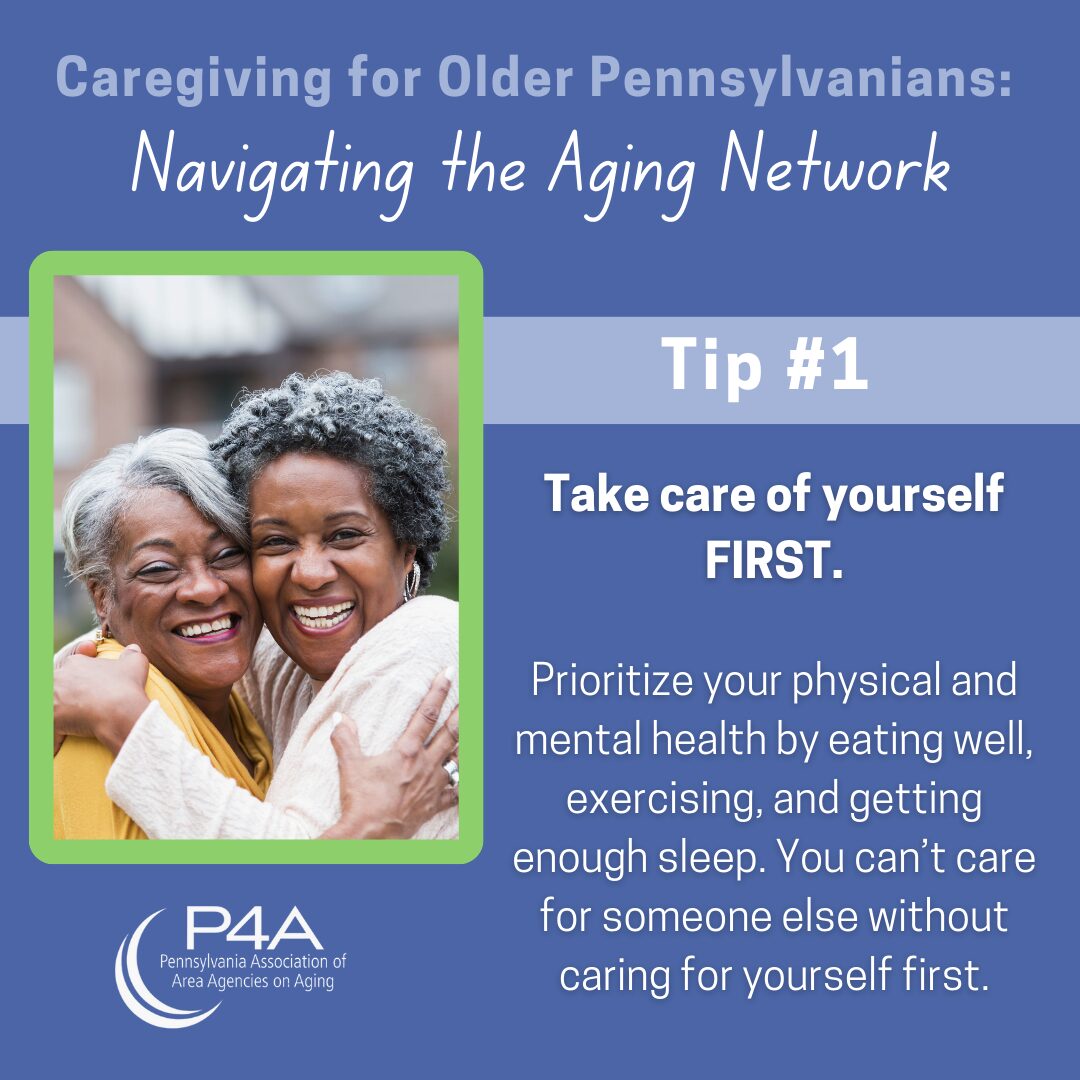Navigating the Aging Network Tip #2: Understanding Your Loved One’s Health Conditions
This article is part of an ongoing series for caregivers of older adults in Pennsylvania, designed to help you access resources, support services, and community connections to enhance your caregiving experience. This series was created and written by Pennsylvania Area Agencies on Aging (AAA) network.
Navigating the Aging Network: Understanding Your Loved One’s Health Conditions
As we continue our “Navigating the Aging Network” series, we focus on an essential aspect of caregiving: understanding your loved one’s health conditions. This knowledge is crucial for providing better care and identifying potential issues early. By educating yourself about their specific needs, you can become a more effective advocate and caregiver, ensuring your loved one receives the best possible care.
Why It’s Important
As people age, they are more likely to experience multiple health conditions simultaneously. By educating yourself about these conditions, you can:
- Provide more effective care
- Recognize early warning signs of complications
- Communicate more effectively with healthcare providers
- Make informed decisions about treatment options
Common Health Conditions in Older Adults
Common health conditions in older adults include chronic diseases such as heart disease, diabetes, and arthritis. These conditions often require ongoing management and can significantly impact daily life. Sensory changes, including hearing and vision loss, are also prevalent and can affect an older adult’s ability to communicate and interact with their environment. Cognitive changes, including various forms of dementia, may occur and require specialized care approaches. Osteoporosis and an increased risk of falls are also concerns that caregivers should be aware of, as they can lead to serious injuries. Additionally, mental health issues such as depression are not uncommon in older adults and should not be overlooked.
Steps to Educate Yourself
- Consult with healthcare providers: Attend medical appointments with your loved one and ask questions about their conditions, treatments, and potential complications.
- Utilize reliable resources: Access information from reputable sources such as the National Council on Aging, MedlinePlus, or disease-specific organizations.
- Understand medications: Learn about the purpose, dosage, and potential side effects of all prescribed medications.
- Stay informed about screenings: Familiarize yourself with recommended health screenings for older adults, such as mammograms, bone density tests, and colorectal cancer screenings.
- Recognize the impact of multiple conditions: Understand how different health issues may interact and affect your loved one’s overall well-being.
Becoming Best Equipped to Provide Support
By taking these steps to educate yourself about your loved one’s health conditions, you’ll be better equipped to support their health and well-being as they age. This knowledge not only improves the quality of care you can provide but also strengthens your relationship with your loved one, allowing you to face health challenges together with confidence and understanding.
Remember, your local Area Agency on Aging is always available to provide additional resources and support in navigating the complexities of elder care. Visit https://p4a.org/ for more information.




